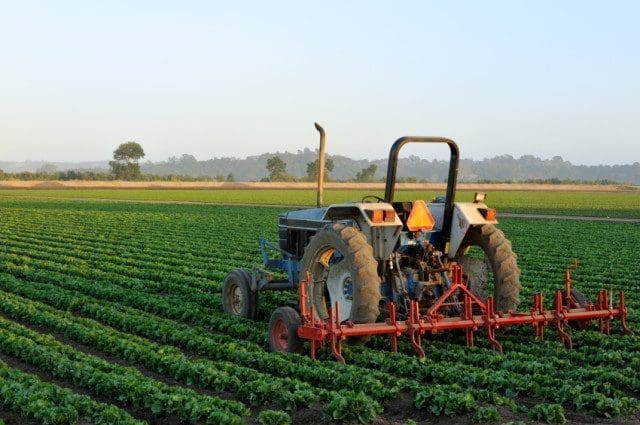Daniel Fahene Acquaye, Chief Executive Officer (CEO) of Agri-Impact Group, has called for Ghana to abandon subsistence farming and embrace commercial agribusiness as the cornerstone of national wealth creation and export competitiveness.
The serial agribusiness entrepreneur, who has established multiple agricultural enterprises including Agri-Impact Consult and Fresh Logistics, emphasized that Ghana’s agricultural policies require urgent realignment toward building competitive value chains that extend beyond the country’s traditional cocoa dependence.
Speaking in an exclusive interview, Acquaye argued that Ghana possesses significant untapped potential in horticulture, livestock, grains, and agro-processing sectors capable of generating thousands of employment opportunities while substantially boosting foreign exchange earnings.
The agribusiness executive stressed the critical need for structured market access, identifying post-harvest losses as a persistent challenge plaguing farmers across the country. He advocated for strengthened linkages between production and markets through contract farming arrangements, commodity exchanges, and out-grower schemes.
“Agriculture will take you from Axim to Paga, even further than where gold or salt might not take you,” Acquaye said, highlighting agriculture’s potential to generate massive economic benefits with inclusive growth opportunities surpassing many extractive industries.
The Agri-Impact Group CEO emphasized youth integration into agricultural transformation, calling for comprehensive agribusiness education within technical and vocational institutions. He argued that agriculture must undergo a complete rebranding to attract young professionals by showcasing its technology-driven nature and sustainable livelihood potential.
Modern agricultural practices now encompass drone technology, precision farming techniques, digital platforms, and substantial export opportunities, contradicting outdated perceptions of farming as labor-intensive manual work. Acquaye believes equipping youth with agribusiness skills will create employment multiplier effects throughout the economy.
Financial barriers remain significant obstacles to agricultural transformation. Acquaye urged financial institutions to develop specialized loan products tailored for agribusiness operations, supported by comprehensive risk-sharing mechanisms. He called on policymakers to ensure programme consistency, noting that short-term political cycles frequently disrupt long-term sectoral development.
Policy stability emerges as crucial for agribusiness maturation, requiring sustained government incentives for private investment in storage facilities, irrigation systems, mechanization, and processing capabilities.
Recent developments in continental trade present unprecedented opportunities, with the Intra-African Trade Fair 2025 projected to generate trade and investment deals exceeding $44 billion among over 35,000 visitors from 140+ countries.
Acquaye expressed optimism about opportunities presented by the African Continental Free Trade Area (AfCFTA), particularly given Ghana’s position as host of the continental trade agreement’s secretariat. He maintained that Ghana should lead regional agribusiness development to dominate continental markets.
The 1.4 billion-person African market accessible through AfCFTA requires Ghanaian agribusinesses to meet international standards, ensure consistent supply chains, and embrace comprehensive value addition. Acquaye envisions Ghana exporting processed pineapples, mangoes, poultry products, and manufactured foods across Africa rather than limiting exports to raw commodities.
Current government initiatives include developing frameworks to promote food safety and export competitiveness through partnership between the Ministry of Trade, Agribusiness, and Industries and TradeMark Africa, indicating growing policy attention toward agricultural export standards.
Continental support for agricultural transformation includes recent initiatives by the Economic Commission for Africa, ECOWAS Commission, and partners to strengthen cross-border agricultural value chains between Côte d’Ivoire and Ghana, specifically targeting enhanced intra-regional trade under AfCFTA implementation.
The agribusiness leader concluded that commercial, technology-driven agribusiness integrating production, processing, and marketing represents Ghana’s most viable path toward industrialization and comprehensive economic transformation.
Recent concerns about insufficient budgetary allocation to agriculture, with only GH¢1.5 billion allocated in the 2025 national budget, underscore the policy challenges Acquaye identifies as barriers to sectoral transformation.
Agriculture’s potential as a wealth-creating sector rather than a poverty trap depends entirely on professional business management approaches, according to Acquaye’s assessment of Ghana’s development priorities.
Source: newsghana.com.gh











